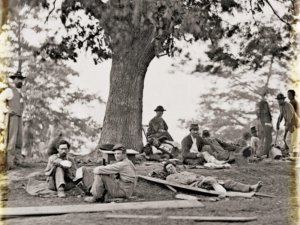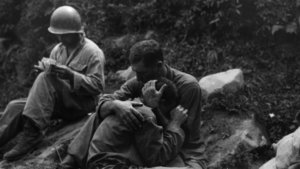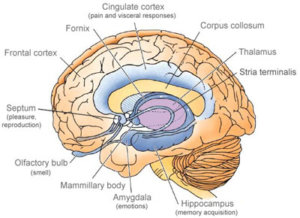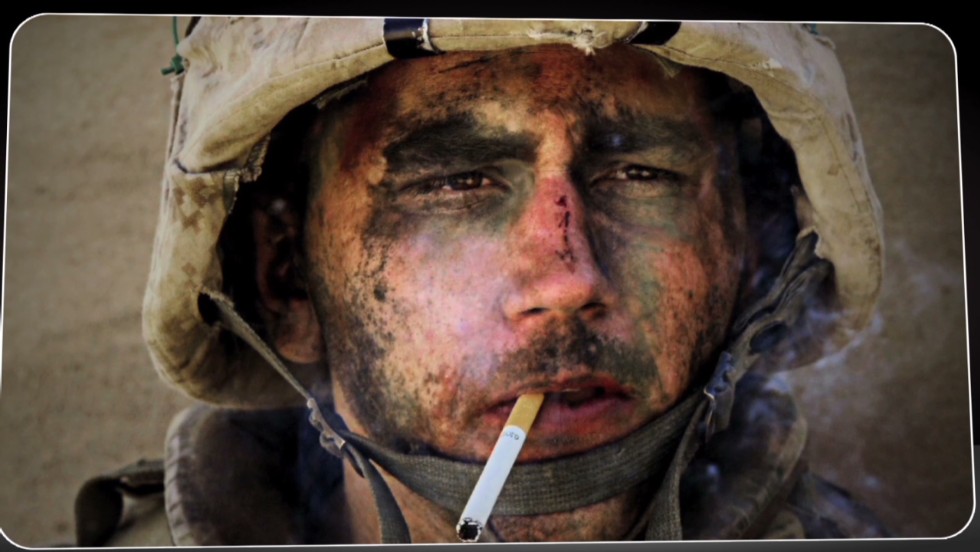Post Traumatic Stress Disorder or PTSD has existed since the dawn of man. Yet it was never classified until the end of the Vietnam War. Before that it had many colorful names.

The History of PTSD
In 1678, Swiss military physicians equated PTSD to “Nostalgia” or to “miss one’s home.” During the same period the Germans would call it “hiemweh,” or “homesickness.” The Spanish term for PTSD was “estar roto,” or “to be broken.” During the American Civil War it was called “Soldier’s Heart” and later in 1871, was formally documented.
Even after being accepted by doctors after the Civil War, PTSD was still misunderstood. So much that the US established the Government Hospital for the Insane. During the year 1864, Assistant Surgeon General Robert C. Woods said:
It is by lack of discipline, confidence, and respect that many a young soldier become discouraged and made to feel the bitter pangs of homesickness which is usually the precursor to more serious ailments.
Post-Traumatic Stress was often equated to homesickness. However, due to the advance of modern medicine this has proved not to be the case. The soldiers that suffered were often institutionalized. Also, mistreated by their fellow comrades. Today there is a higher understanding of the mechanics of Post-Traumatic Stress.

Warfare was brought to a global scale during WWI. With great advances in technology. Like advanced artillery, machine guns, and aircraft. These weapons could be created in factories on levels unheard of before. Trench warfare was very long and brutal. Doctors noticed that soldiers exhibited symptoms of PTSD due to heavy artillery barrages. This was known as Shell-Shock.
The military was unprepared for the psychological casualties of war during WWI. However, effort was made to treat them in the forward areas during WWII. We had learned from lessons in WWI. The efforts continued into the Vietnam War.
During the Vietnam War there were surprisingly very few cases of acute PTSD. This could be attributed to the fact that our troops were not subjected to constant artillery barrages as they were in WWI and WWII. During much of the Vietnam War our soldiers and Marines were fighting an unseen enemy. Many North Vietnamese did not wear uniforms and blended in with the local populace. The invisible wounds from the Vietnam War did not manifest until long after returning home. Many veterans from the Vietnam War hid their symptoms. Instead they turned to drugs and alcohol. This is because they were fighting in an unpopular war that veterans were “demonized” in. Vietnam veterans did not receive the proper reception from our nations citizens upon returning home.
Today there is much scientific research and studies that are attributed to the study of PTSD. After over ten years of war in two countries we have been able to pump a lot of time and money in to research.

The Mechanics of PTSD
PTSD is caused by two factors. Fear of death and guilt association.


“PTSD is caused by two factors. Fear of death and guilt association.”
I don’t agree with that. I am not afraid of death and never was. Been there done that (was pronounced dead on the scene of a car accident for over 4 minutes). In 2010 on New Years Day I had a heart attack and casually drove to the hospital for help. No fear of death. The guilt association I believe with Marines. Watching our brothers die or get severely injured we can’t stand. It makes us angry with the enemy and ourselves because it was not us. Marines would rather it be them then their friends and that causes more PTSD then anything.
It isn’t that you are necessarily “afraid” of death. Yet being put in an intense situation in combat will raise your adrenaline and cortisol levels to epic proportions. This is natural, it is called the flight-or-flight response. Before being put in intense situations that challenge what psychologists call “the just world belief” your adrenaline has a governor. However getting blown-up, enduring a mass casualties, having Marines Fall under your leadership or watch, or being ambushed can raise hyper-vigilance to such a level that it will affect a veteran for a life time. This is what I mean when I say fear of death. It is natural to raise your arm in defense for that mili-second someone tries to strike you with a bat, and in natural response before you can asses the situation. Just because you raise your arm doesn’t mean you’re afraid.
Courage is not the absence of fear, but the strength to overcome it